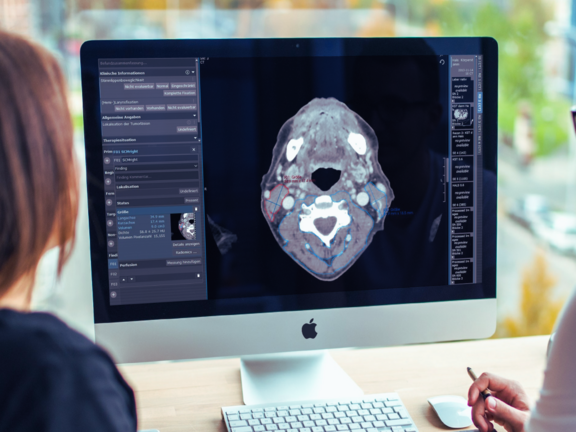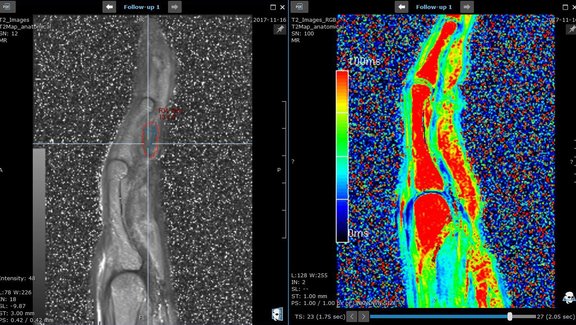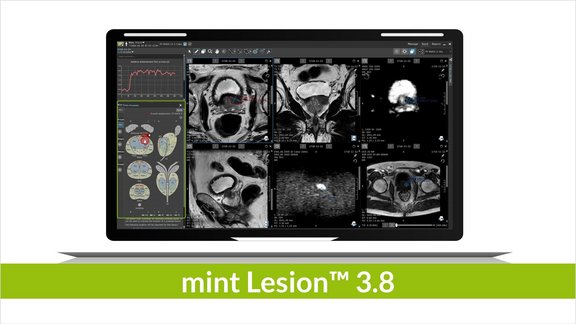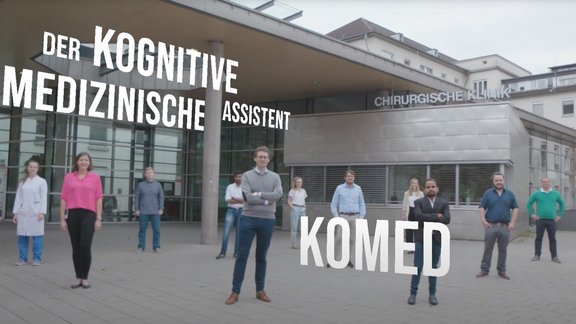A recent study conducted by the Medical University of Innsbruck highlights the potential of radiomics in exploring the impacts of Radiochemotherapy (RCT) on patients with Head and Neck Squamous Cell Carcinoma (HNSCC). This study is the first to explore short-term RCT-induced skeletal muscle alterations after RCT in HNSCC patients applying radiomics, a data-driven approach aiming at extracting and processing quantitative data to analyze image-based information.
With the help of the mint Lesion™ Radiomics module, the research examined radiation-induced changes in the sternocleidomastoideus muscle (SCM) and paravertebral musculature (PVM) post-RCT. Analyzing key radiomic features like volume, mean positivity of pixels, and uniformity the study team was able to confirm the optimal window of 6 to 12 weeks for salvage surgery post-RCT, minimizing the risk of complications due to tissue fibrosis. These findings further showcase how radiomics can enhance medical treatment strategies and indicate a bright path for ongoing research in this area.



